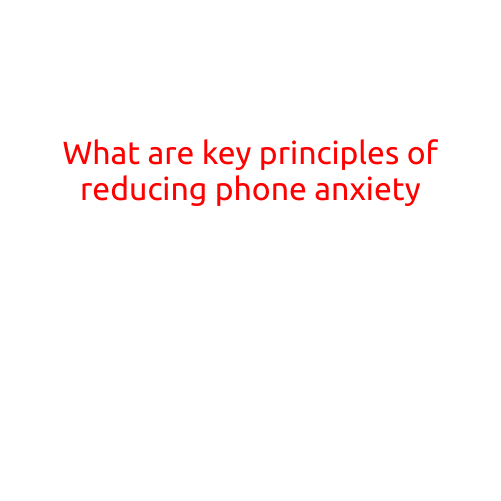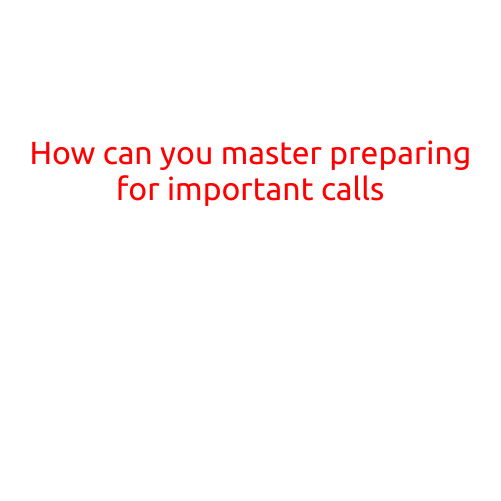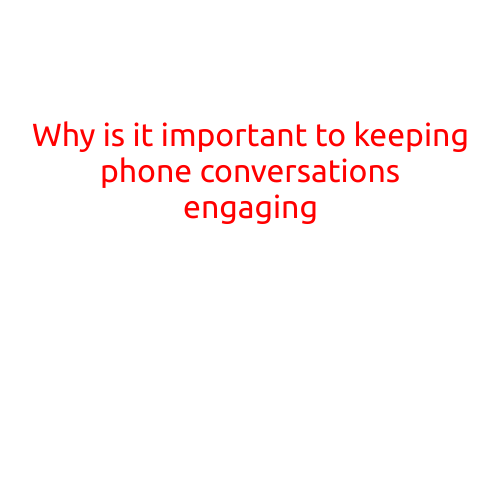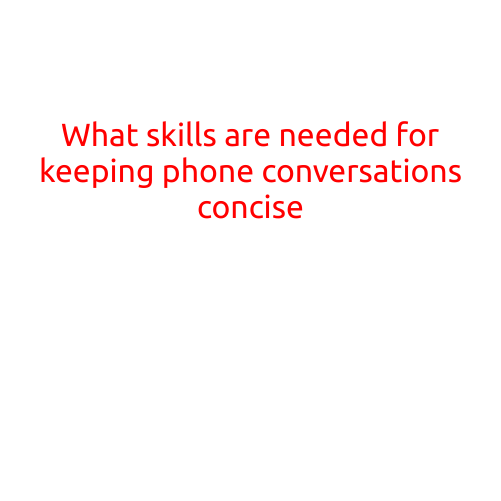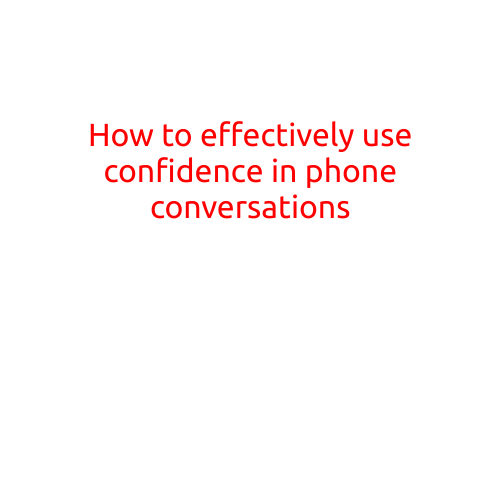
How to Effectively Use Confidence in Phone Conversations
Confidence is a crucial component in any interaction, and phone conversations are no exception. When you exude confidence over the phone, you’re more likely to build trust, establish credibility, and achieve your goals. In this article, we’ll explore the importance of confidence in phone conversations and provide you with practical tips on how to effectively use it.
Why Confidence Matters in Phone Conversations
Phone conversations differ from in-person interactions in many ways. Without visual cues, tone of voice, and body language, it’s easy to misinterpret or misunderstand each other. Confidence helps compensate for these limitations by:
- Conveying your message: Confidence enables you to articulate your thoughts clearly and convincingly, making it easier for the other person to understand your point of view.
- Building trust: When you speak with authority and conviction, the other person is more likely to trust your judgment and expertise.
- Managing anxiety: Confidence helps you stay focused and composed, reducing anxiety and increasing your ability to think on your feet.
Practical Tips to Boost Your Confidence in Phone Conversations
Now that you understand the importance of confidence in phone conversations, let’s dive into some practical tips to help you develop it:
- Prepare beforehand: Research the topic, gather your thoughts, and practice what you want to say. This will help you feel more confident and prepared.
- Stand tall: Even though you’re not in a physical setting, maintain good posture while you’re on the phone. This will help you stay energized and focused.
- Speak clearly and slowly: Enunciate your words, pause between sentences, and avoid rushing through your conversation. This will help you convey your message more effectively.
- Use positive self-talk: Before the call, remind yourself that you’re well-prepared and have valuable insights to share. This will help boost your confidence and reduce anxiety.
- Focus on the conversation: Concentrate on what the other person is saying and show that you’re attentive. This will help you stay engaged and build rapport.
- Don’t apoloogize: Avoid unnecessary apologies, especially if you’re not making a mistake. Confidence comes from knowing that you’re prepared and knowledgeable.
- Ask open-ended questions: Encourage the other person to share their thoughts and opinions by asking open-ended questions. This will help you remain engaged and build trust.
- Stay calm under pressure: Anticipate potential curveballs and challenges during the conversation. Stay calm, and remember that you’ve prepared for this scenario.
- Use positive language: Frame your message in a positive light, and avoid negative or critical language. This will help you come across as more confident and approachable.
- Practice, practice, practice: The more you practice using confidence in phone conversations, the more natural it will become.
Conclusion
Confidence is a powerful tool that can greatly enhance your phone conversations. By following these tips, you can develop the confidence you need to effectively communicate your message, build trust, and achieve your goals. Remember, confidence is not about being aggressive or arrogant; it’s about being prepared, knowledgeable, and authentic. With practice and patience, you can enhance your confidence in phone conversations and become a more effective and persuasive communicator.


